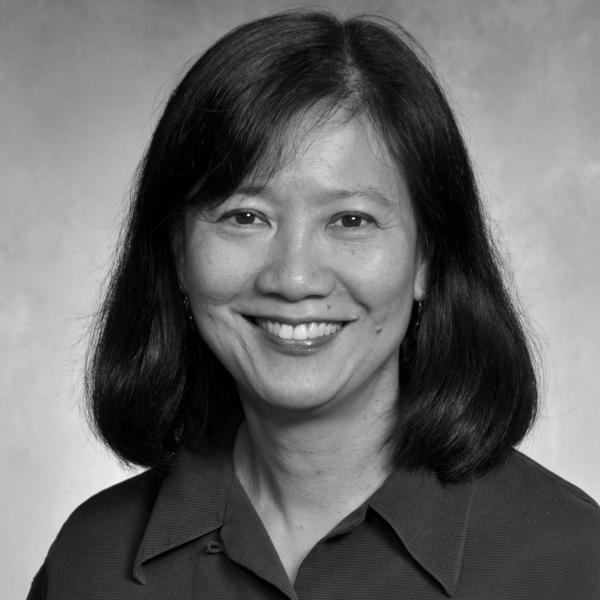My lab has had a long-standing interest in understanding the basis of immunological tolerance and humoral immunity following allogeneic transplantation. We have been collaborating extensively with Dr. Marisa Alegre in studying how infections prevent the induction of transplantation tolerance or destabilize established tolerance, and understanding the fundamental mechanisms of robust transplantation tolerance. We recently have developed new approaches to track a defined population of endogenous allospecific T (CD4+effectors (Th1 and Tfh), CD4+Tregs and CD8 effector) and B cells (Class I and Class II reactive), and are now asking how each of these subsets of cells behave under conditions of rejection, memory/sensitization and tolerance, with the goal of identifying new biomarkers of tolerance and rejection.
We also actively investigating the behavior of memory alloreactive B cells in the setting of transplantation, and in identifying how these cells differ from naïve B cells, with the goal of identifying immunosuppressive and tolerance inducing strategies to control this clinically important subset of cells. We are conducting these studies in experimental rodent models, and also testing our findings in humans. These studies are performed in collaboration with Dr. Roger Sciammas at UCDavis, and the clinical transplant faculty at the University of Chicago and Ohio State University.
In addition, we have stretched our research into the prevention of infections through vaccination, with the long-term goal of using this strategy as an indirect but cost-effective means of stabilizing tolerance. Towards this goal, my lab has been collaborating with Dr. Chris Montgomery, a physician scientist in the Department of Pediatrics, to identify sub-unit vaccine candidates and to investigate the immunobiology of protection from Staphylococcus aureus skin infections. My lab also has a strong program of collaborative research with Dr. Joel Collier, a bioengineer at Duke University, to develop of nanoparticulate adjuvant-free vaccines that can elicit protective immune responses with minimal inflammation. Such a vaccine that elicits minimal inflammation may be ideal for tolerant patients, as we now appreciate that inflammation can destabilize established tolerance.
University of Arizona
Tucson, AZ
Research Associate
Tufts University
Boston, MA
Post-Doctoral Fellow
Australian National University
Australia
PhD
University of Malaya
Malaysia
BS (Hons)
Low-affinity CD8+ T cells provide interclonal help to high-affinity CD8+ T cells to augment alloimmunity.
Low-affinity CD8+ T cells provide interclonal help to high-affinity CD8+ T cells to augment alloimmunity. Am J Transplant. 2024 Jan 14.
PMID: 38228228
Advancing mouse models for transplantation research.
Advancing mouse models for transplantation research. Am J Transplant. 2024 Jan 12.
PMID: 38219866
MHC Tetramers Specifically Identify High- and Low-avidity Donor-specific B Cells in Transplantation Tolerance and Rejection.
MHC Tetramers Specifically Identify High- and Low-avidity Donor-specific B Cells in Transplantation Tolerance and Rejection. Transplantation. 2023 Dec 01; 107(12):2526-2532.
PMID: 37493609
Heterogeneity in allospecific T cell function in transplant-tolerant hosts determines susceptibility to rejection following infection.
Heterogeneity in allospecific T cell function in transplant-tolerant hosts determines susceptibility to rejection following infection. J Clin Invest. 2023 11 01; 133(21).
PMID: 37676735
Lung cDC1 and cDC2 dendritic cells priming naive CD8+ T cells in situ prior to migration to draining lymph nodes.
Lung cDC1 and cDC2 dendritic cells priming naive CD8+ T cells in situ prior to migration to draining lymph nodes. Cell Rep. 2023 10 31; 42(10):113299.
PMID: 37864794
A novel triptolide analog downregulates NF-?B and induces mitochondrial apoptosis pathways in human pancreatic cancer.
A novel triptolide analog downregulates NF-?B and induces mitochondrial apoptosis pathways in human pancreatic cancer. Elife. 2023 Oct 25; 12.
PMID: 37877568
IL-21-producing effector Tfh cells promote B cell alloimmunity in lymph nodes and kidney allografts.
IL-21-producing effector Tfh cells promote B cell alloimmunity in lymph nodes and kidney allografts. JCI Insight. 2023 Oct 23; 8(20).
PMID: 37870962
State-of-the-art Meeting on Sex and Gender in Transplantation: The Female Perspective.
State-of-the-art Meeting on Sex and Gender in Transplantation: The Female Perspective. Transplantation. 2023 09 01; 107(9):1865-1869.
PMID: 37101316
Sex as a biological variable: Mechanistic insights and clinical relevance in solid organ transplantation.
Sex as a biological variable: Mechanistic insights and clinical relevance in solid organ transplantation. Am J Transplant. 2023 11; 23(11):1661-1672.
PMID: 37543092
Donor programmed cell death 1 ligand 1 is required for organ transplant tolerance in major histocompatibility complex-mismatched mixed chimeras although programmed cell death 1 ligand 1 and major histocompatibility complex class II are not required for inducing chimerism.
Donor programmed cell death 1 ligand 1 is required for organ transplant tolerance in major histocompatibility complex-mismatched mixed chimeras although programmed cell death 1 ligand 1 and major histocompatibility complex class II are not required for inducing chimerism. Am J Transplant. 2023 08; 23(8):1116-1129.
PMID: 37105316
